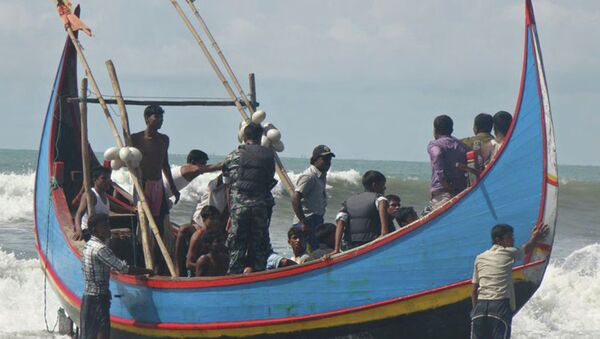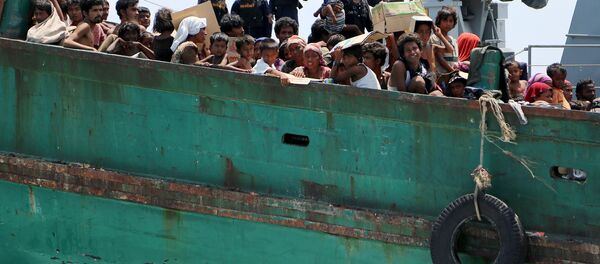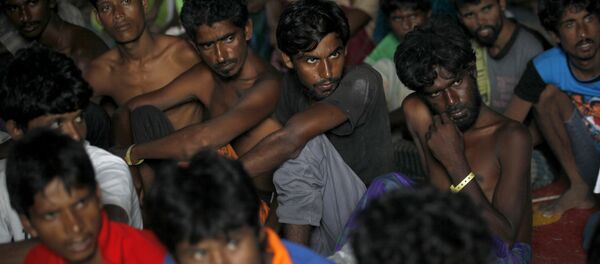They [Indonesia] believe there are about 7,000 people at sea [and] they think about 30 to 40 percent are Rohingya, the rest are Bangladeshi; and they are not, in Indonesia's words, asylum-seekers, they are not refugees – they are illegal laborers. They've been promised or are seeking jobs in Malaysia."
"They said the Rohingya have gone to Bangladesh and have mixed up with the Bangladeshis who are coming to Malaysia in particular for jobs," said Bishop, speaking at a conference of foreign ministers in Seoul on Friday.
The Rohingya in Myanmar are characterized by the Myanmar authorities as Bengali migrants; the Rohingya themselves trace their origin back to Arab traders who settled in the country hundreds of years ago.
Thousands of migrants have been stranded for weeks in the sea of south-east Asia after the crews of human traffickers abandoned ship due to a crackdown on people smuggling by regional authorities. On Tuesday the UN Refugee Agency [UNHCR] called on the governments of Indonesia, Malaysia and Thailand to allow those stranded on the boats to disembark on their territory and access urgently needed food, water and medical assistance.
The authorities in the region had previously maintained that though they would provide food and water to those on the boats, but not allow them to dock in their territory.
"Countries of origin, transit, and destination as well as the international community must work collectively to solve this problem, which should not be left to any country alone," the Thai Ministry of Foreign Affairs stated after the meeting.
"The meeting urged for a comprehensive solution and concerted efforts in addressing the unprecedented increase of irregular migration in the region."
According to the UNHCR, an estimated 25,000 Rohingya and Bangladeshis boarded smugglers' boats on the Bay of Bengal between January and March this year, almost double the number who departed over the same period in 2014. In a statement earlier this month, the UNHCR said it advocates efforts to stabilize the situation in Myanmar's state of Rakhine, where many of the migrants originate, "through reconciliation, the realization of rights for all, socio-economic equality and addressing issues related to citizenship."
On Thursday Australian Prime Minister Tony Abbott, said "nope nope, nope," when asked if Australia would offer resettlement to some of those who sought to travel east in search of a better life.
"Our role is to do everything we humanly can to stop people smuggling. The best way to do that is to make it absolutely crystal clear that if you get on a leaky boat, you aren't going to get what you want, which is a new life in a Western country," Abbott told reporters.
"This is quite properly a regional responsibility and the countries that will have to take the bulk of the responsibility are obviously the countries which are closest to the problem. Now, in the end, the culprit is Burma [Myanmar] because it is Burma where there is an issue."




